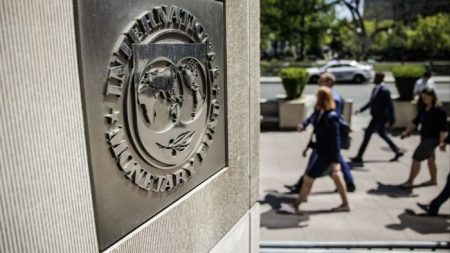Unlock the Editor’s Digest for free
Roula Khalaf, Editor of the FT, selects her favourite stories in this weekly newsletter.
French authorities think far-left groups could have been behind a mass sabotage of the country’s high-speed rail lines on the day of the Paris Olympics opening ceremony, as France remained on guard after a separate incident affecting telecom lines.
Interior minister Gérald Darmanin on Monday said the methods identified in last week’s rail sabotage, which disrupted thousands of journeys, resembled those of far-left extremists who had carried out similar attacks on a smaller scale. He cautioned that the full picture was not yet known, saying the attackers could have been acting on behalf of other parties or manipulated.
“We’ve identified a certain number of profiles of people who could have committed these acts of sabotage,” Darmanin told France 2 TV station. “It’s traditionally the way far-left groups act.”
Telecoms operators were also hit by an incident overnight between Sunday and Monday, with some of their fibre-optic cables cut in at least nine departments in France, creating localised mobile and fixed line outages.
Iliad, which markets its offers under the brand name Free, confirmed that there had been a “multi-operator” incident in the departments of Aude, Herault, Marne, Meuse and Vaucluse, and said its teams were working to repair the situation.
The French telecoms federation said the fallout for clients was limited but that “the simultaneous nature of these events and the targeted infrastructure points to acts of sabotage”.
Paris prosecutors have handed the investigation to their organised crime unit and said it was looking into “alleged destruction of goods with a view to damaging national interests.”
The damage was made to operators’ long-distance fibre lines, which cross the country and are located underground and usually in fenced in locations. Officials have not yet given explanations of what happened.
“I strongly condemn these irresponsible and cowardly acts,” said Marina Ferrari, the junior minister for digital affairs.
The state-backed operator Orange said it had not been hit by any outages or incidents. SFR, which is owned by Patrick Drahi’s Altice, said: “These are acts of vandalism.” The impact on SFR clients was not significant because of rerouting and back-up systems.
In the train sabotage on Friday, three major high-speed axes connecting Paris to the north, east and west of the country were felled when electricity cables were cut. Arsonists also set fire to connection and signal boxes, creating much broader chaos.
Prosecutors in Rouen said on Monday that a man had been arrested late on Saturday at another railway site in Normandy, although it was not clear whether this had been an attempted repeat. A train driver had spotted several people near an installation containing electricity cables, and police arrested the man when he came to collect his car, in which they found several objects including paint spray cans.
AFP reported that the man also had keys to SNCF equipment, pliers and written material linked to far-left movements.
Darmanin also said that just under 50 activists from environmentalist group Extinction Rebellion had been detained over the weekend, after police identified they had planned acts of “sabotage or radical action” during the first days of sporting competitions.
Normal train services had virtually resumed by Monday after a mad dash by repair teams from the SNCF state-owned train operator to get the lines up and running. But investigators are still trying to definitively pinpoint who was behind the attack, or if a group was being used as a proxy.
“There’s the question of whether these people were manipulated by other people or whether they were acting for themselves,” Darmanin said.
In the run-up to the Games, French police and intelligence services had been on high alert over the possibility that Russia could seek to disrupt the Olympics, including through cyber attacks on critical infrastructure.
Darmanin added that the attackers had known exactly where to hit to cause maximum damage, saying this showed they had access to sensitive and precise SNCF information.
But the minister said an anonymous letter reportedly received by several news outlets over the weekend, claiming the attackers had specifically sought to hit the Olympics, could have been fake or opportunistic.
Some 800,000 people were affected over a big weekend for holiday departures. In the event, most were able to travel, although 100,000 people had their trains cancelled, transport minister Patrice Vergriete, told RTL radio on Monday.
Read the full article here












